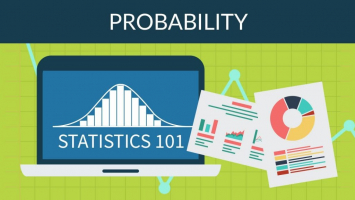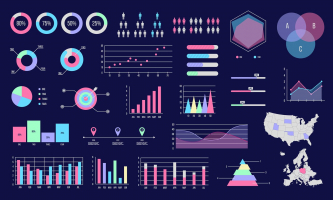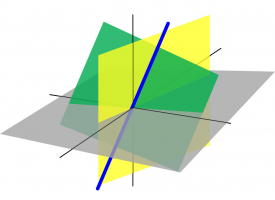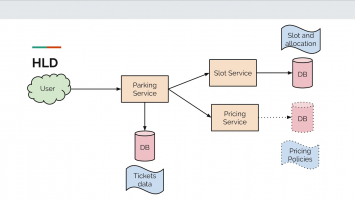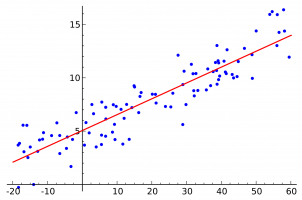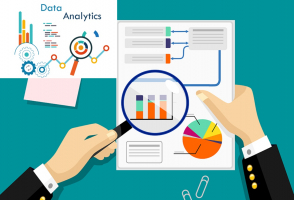Top 8 Best Online Hypothesis Testing Courses
Hypothesis testing is an assessment method that allows researchers to determine the plausibility of a hypothesis. The most significant benefit of hypothesis ... read more...testing is it allows you to evaluate the strength of your claim or assumption before implementing it in your data set. If you are interested in hypothesis testing and want to learn about it, here are the best online hypothesis testing courses that Toplist offers you.
-
Exploration and assessment of the strength of associations between variables/features is critical in statistical analysis and machine learning. All of the applications in the course are written in Python. There is some overlap between this course and the instructor's other course, "Correlations, Associations, and Hypothesis Testing (with R)." This course, on the other hand, will benefit both junior analysts and more experienced data scientists. If you are an aspiring/junior data analyst/scientist, this course will assist you in laying the proper foundation early in your career. If you're a seasoned data scientist, this course will help you revisit and eventually improve your understanding of assessing associations between variables/features.
There are three major sections to the course. Each section examines a variety of statistical metrics in relation to variable associations and then constructs statistical hypothesis tests to assess the strength of these relationships. Throughout the course, you'll see how to use Python to implement the methods discussed in class and perform various hypothesis tests on real-world datasets. You'll also learn and master the art of interpreting results in a larger context.
A quiz is also included at the end of each section. These quizzes are designed to assist you in consolidating the main concepts covered in the course. You will have a clear and coherent understanding of covariances, correlations, t-test, Chi-squared test, ANOVA, F-test, and much more by the end of the course. You'll learn when and how to use these tests, as well as how to ensure that the underlying assumptions are met.
Who this course is for:
- Anyone interested in data analysis.
- All levels
Requirements
- There is no requirement for prior experience. You will begin with the fundamentals.
Course ratings: 5.0/5
Enroll here: https://www.udemy.com/course/with-python-correlations-association-hypothesis-testing/
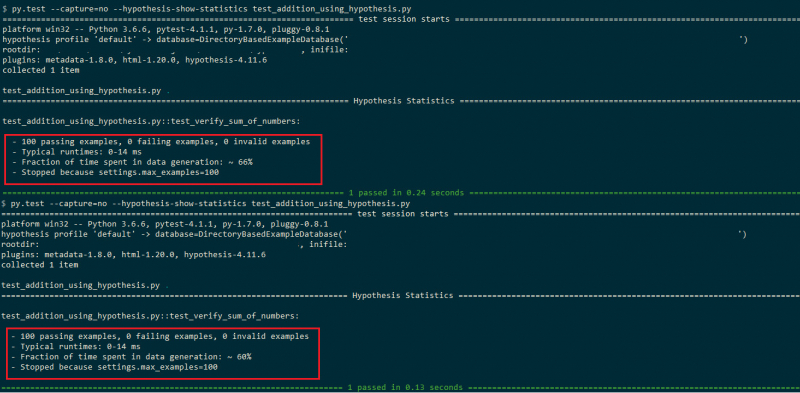
lambdatest.com 
sanitycare.com - Anyone interested in data analysis.
-
The use of sample data to assess the plausibility of a hypothesis is known as hypothesis testing. Such information could come from a larger population or a data-gathering process. The quickest and easiest way to learn "Hypothesis Testing" This course will teach you how to use MS Excel to understand the concept of hypothesis testing and how to apply it in your research project, dissertation, or thesis. The simplest and quickest way to learn "Hypothesis Testing" with Ms. Excel is thoughtfully designed for social science researchers and students who are struggling with data analysis and statistics.
The course will help you improve your academic performance in your research or statistics course and will also help you prepare for your exam. It is made up of three hours and thirty minutes of video lectures. Don't worry if you have no prior experience with data analysis or statistics. You will be taught from the ground up.
Who this course is for:
- Researchers of various field working on their Project, Dissertation and Thesis
- Graduate and Post Graduate Student of Social Science (Bcom, Mcom, BBA, MBA)
- PhD Research Scholar
Requirements
- No prior knowledge of statistics
- No Special software is required
- Do not Worry, if you don’t Have any prior knowledge of Statistics. You will start from scratch
Course ratings: 4.9/5
Enroll here: https://www.udemy.com/course/easy-quickest-way-to-learn-hypothesis-testing/
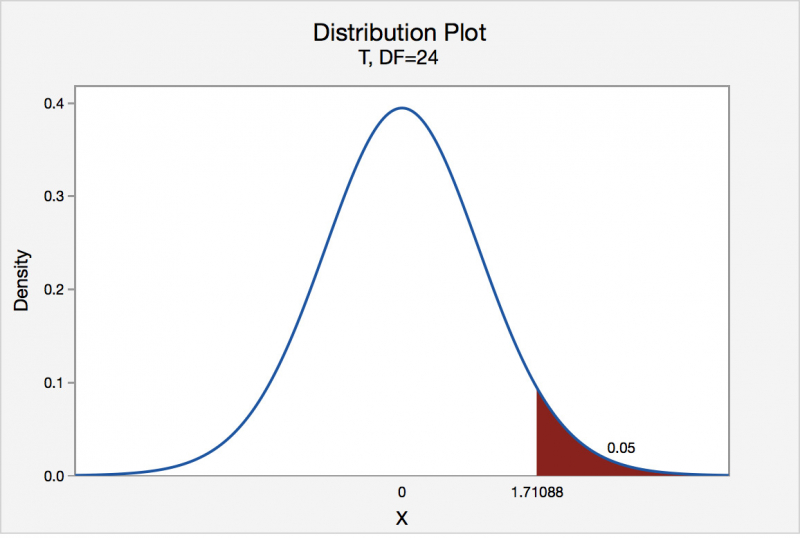
online.stat.psu.edu 
digitaldefynd.com -
In statistical analysis and machine learning, exploring and assessing the strength of associations between variables/features is crucial. Junior analysts as well as more experienced data scientists will benefit from this course. This course will help you build the right foundation at an early stage of your career if you are an aspiring/junior data analyst/scientist in particular. Furthermore, if you are a seasoned data scientist, this course will assist you in revisiting and ultimately improving your understanding of the evaluation of associations between variables/features.
The course is broken down into three sections. The first section examines how to assess and quantify relationships between numerical variables. The assessment of associations between categorical variables is the focus of the second section. The assessment of associations between numerical and categorical variables is covered in the third section. Each section examines a variety of statistical metrics in relation to variable associations before constructing statistical hypothesis tests to assess the strength of these relationships.
Throughout the course, there will be practical sessions where you will learn how to implement the methods discussed in the course (using R) and perform various hypothesis tests on real-world datasets. You'll also learn and master the art of interpreting data in a larger context. A quiz is also included at the end of each section. These quizzes are designed to assist you in consolidating the main concepts covered in the course. You will have a clear and coherent understanding of covariances, correlations, t-test, Chi-squared test, ANOVA, F-test, and much more by the end of the course. You'll learn when and how to use these tests, as well as how to ensure that the underlying assumptions are met.
Who this course is for:
- Anyone interested in data analysis.
- All levels
Requirements
- No prior experience is required. You will start from the basics.
Course ratings: 4.7/5
Enroll here: https://www.udemy.com/course/correlations-associations-and-hypothesis-testing-with-r/
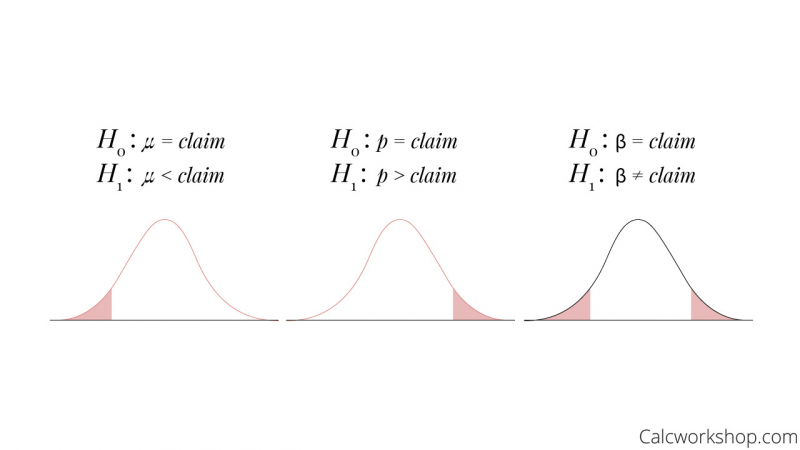
calcworkshop.com 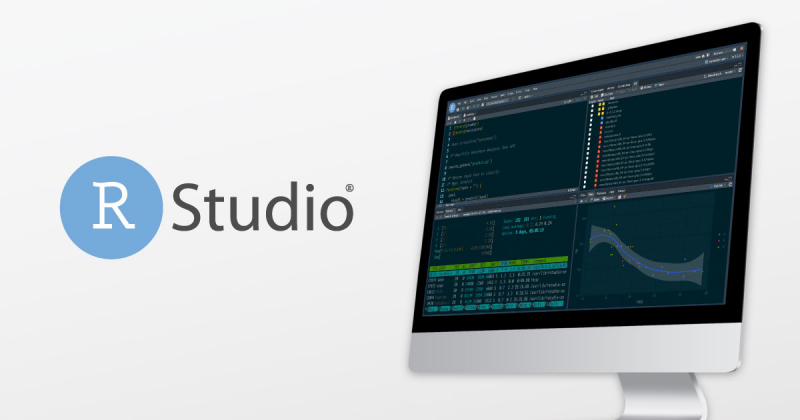
rstudio.com -
Do you want to learn the fundamentals of hypothesis testing? This course, one of the best online hypothesis testing courses, is tailored to students who are having difficulty with statistics, those who are not quantitatively inclined, and complete beginners (newbies!) in statistics. You will have a thorough understanding of Hypothesis Testing for Population Means after completing this course, and you will be able to answer exam-style questions with ease. The instructors use intuitive step-by-step explanations and assume that the students have no prior knowledge of statistics.
The instructors in The Simplest & Easiest Course on Hypothesis Testing course provide exam-style questions similar to those found in college and university courses so you can put what you've learned into practice right away. They then show you a video of him going over the questions step by step so you can fully comprehend how to approach and complete them on your own. The key to acing your exams is to practice with exam-style questions. It is not necessary to have any prior knowledge of statistics. You will start from the beginning.
Who this course is for:
- Suitable for students struggling with an Introductory Statistics course at the tertiary level (such as in college or university)
- Suitable for students who are complete beginners in Statistics and want to learn from an intuitive and common sense approach
- Suitable for students who are not quantitatively inclined
- Anyone who needs motivation to learn Statistics
Requirements
- No prior knowledge of statistics is needed
- No software is required
- That's it! This course is completely self-contained!
Course ratings: 4.5/5
Enroll here: https://www.udemy.com/course/simplestats/

pe.gatech.edu 
lexinform.com -
This course, one of the best online hypothesis testing courses, will teach you everything you need to know about probability and statistics in order to succeed in business and in the field of data science! This hands-on course will cover statistics theory and application to real-world problems. Example problems, course quizzes, and assessment tests are included in each section. The course will begin by discussing the fundamentals of data, including how to examine it using measures of central tendency and dispersion, as well as how bivariate data sources can be related to one another.
Afterwards, the course will move on to probability, where students will learn about combinations and permutations, as well as conditional probability and how to use the Bayes theorem. Then you'll go over the most common statistical distributions, such as uniform, binomial, poisson, and normal distributions, to build a solid foundation in how to work with them. Up next, the instructor will teach you about statistics, applying what you have learned so far to real world business cases, including hypothesis testing and the student's T distribution.
This course includes HD video with clear explanations and high-quality animations, as well as extensive case studies that demonstrate how to apply what you've learned in the classroom to real-world situations. You'll learn everything you need to know about statistics and probability to tackle real-world business and data science problems with confidence!
Who this course is for:
- Someone interested in learning how to apply probability and statistics to business or data science
Requirements
- Paper and Pencil to take notes
- Optional: Excel or Python to run simulations
Course ratings: 4.5/5
Enroll here: https://www.udemy.com/course/probability-and-statistics-for-business-and-data-science
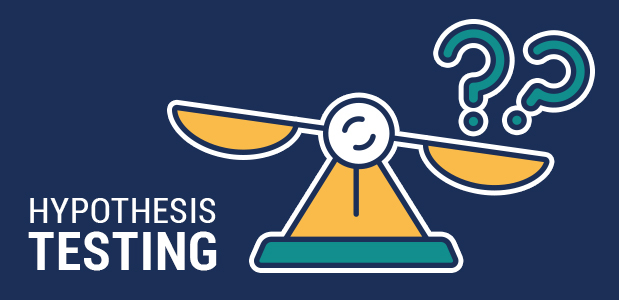
statisticsteacher.com 
bmu.edu.in -
In this course, you will learn why it is rational to use the parameters recovered under the Classical Linear Regression Model for hypothesis testing in uncertain contexts. You will learn all about Hypothesis Testings: Examine whether a claim should be rejected or not. The instructor will focus on one sample testing, then 2 samples testing using P-value method, critical value method, or confidence interval method. Each section will have an introduction on how to use TI 83/84 commands step by step. Performing hypothesis testing for single, multiple hypotheses and identifying, resolving problems raised by identification of parameters are also important parts of this course.
Before starting this course, it is expected that you have an understanding of some basic statistics, including mean, variance, skewness and kurtosis. It is also recommended that you have completed and understood the previous course in this Specialisation: The Classical Linear Regression Model.
Who this course is for:
- Beginner for Statistics Course
Requirements
- Be able to do basics algebra
Course ratings: 4.4/5
Enroll here: https://www.udemy.com/course/introduction-to-statistics-hypothesis-testing/

techmediatoday.com 
tatlerasia.com -
These three components of the Minitab software (Graphical Tools, Control Charts, and Hypothesis Testing) are essential and frequently used by Six Sigma experts and statistical data analysts. This Minitab Masterclass is structured in such a way that you can easily apply your knowledge and skills in your workplace. This helps you gain the desired visibility in your organization, which leads to career advancement and a raise in your salary. This Minitab Masterclass will teach you how to use 24 different Minitab analytical tools and techniques. This Minitab Masterclass program not only adds the Minitab qualification to your skill set, but it also allows you to improve your resume, which will help you stand out in today's competitive world.
By enrolling in this Minitab Masterclass Program, you will receive the most comprehensive Minitab training available, from beginner to advanced. You will learn the different Hypothesis Tests and master the ability to write the Null and Alternative Hypothesis in this course, which will start with an introduction to Hypothesis Testing. Finally, the instructor will explain what a p-value is and how you can use it to interpret results.
Who this course is for:
- Beginner Minitab enthusiasts curious about data analytics. This course is not for experienced data analysts
- Six Sigma and Lean professionals who are new to Minitab
- Individuals who want to begin their analytical career using Minitab
- Individuals who are freshers and are seeking a business analyst role
- Individuals who are seeking freelance assignments for Minitab related work
Requirements
- You should have a fair understanding of Basic Statistics
- You should have a know-how of Graphical Tools such as Box Plot (should have preferably completed the Minitab Basics: Top 10 Graphical Tools for Beginners training)
Course ratings: 4.2/5
Enroll here: https://www.udemy.com/course/minitab-basics-hypothesis-testing-for-beginners/
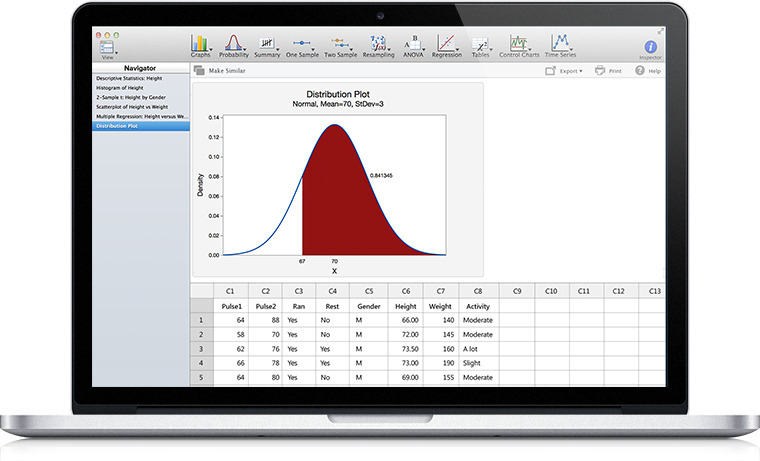
qsutra.com 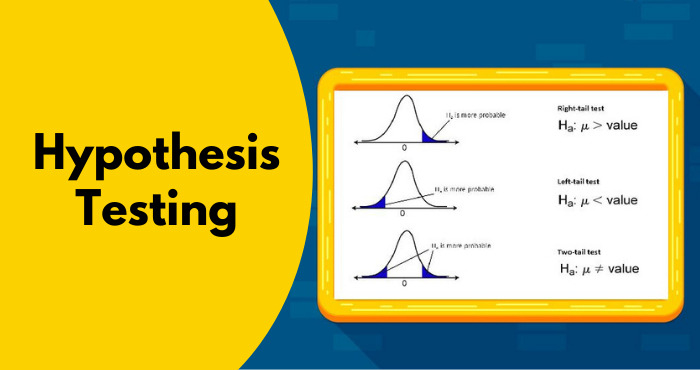
techmediatoday.com -
Hypothesis testing is a statistical procedure that uses a set of numbers to test a researcher's claims and beliefs. It's a broad topic that includes a variety of tests. This statistical tool is studied and used extensively by college students from all disciplines, as well as all researchers, regardless of the topic of their research. This course has made an effort to explain each step of the process in detail. Because visual learning has a higher retention rate, the goal is to aid the learner in following the process smoothly with the use of tables, graphs, and other pictorial tools. To give a better understanding of the different types of tests, various examples and scenarios have been discussed.
In the first video, the significance of null and alternate hypotheses is discussed in depth. A summary table is provided as a quick reference to assist the learner in selecting the appropriate set of hypotheses. In addition, the steps of inference and conclusion are thoroughly discussed. This section covers both the traditional method and the P-value method. The following section goes over the various types of hypothesis tests that are commonly used by scientists. This section uses a variety of illustrative examples to help students understand the various types of hypothesis tests. By the end of this course, you will definitely master the topic of Hypothesis testing.
Who this course is for:
- Statistics students ( High school and university students) and majorly people involved in research ( clinical research, Biostatistics)
Requirements
- NA
Course ratings: 4.2/5
Enroll here: https://www.udemy.com/course/hypothesis-testing/
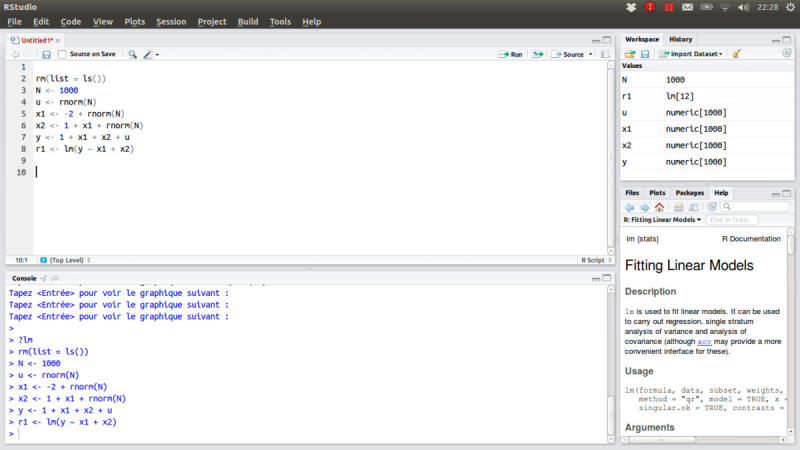
lexinform.com 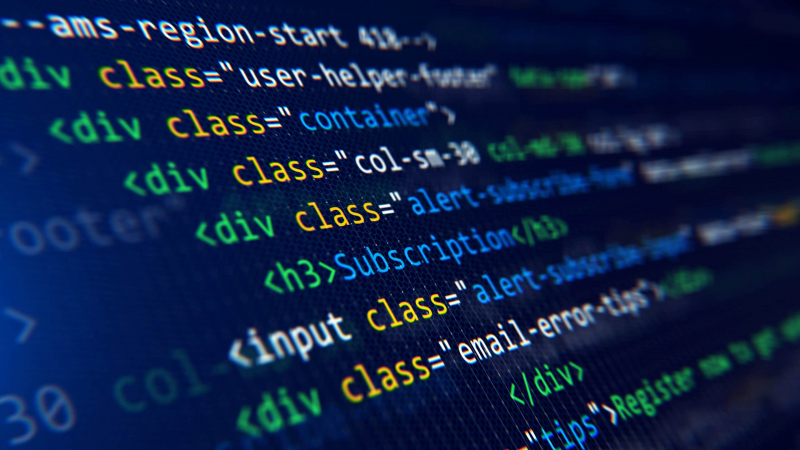
udacity.com - Statistics students ( High school and university students) and majorly people involved in research ( clinical research, Biostatistics)


















